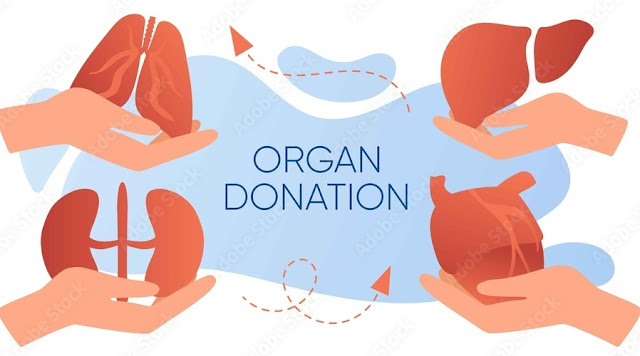 |
| Ensuring Ethical Organ Transplants: Government Directives and Impact [Image Source: Adobe Stock] |
The Union government has initiated an investigation into organ transplants involving foreign nationals in India due to a notable rise in such procedures. The Ministry of Health and Family Welfare has expressed concerns regarding potential commercial dealings in these transplants and has directed closer monitoring by state and union territory authorities, along with actions against hospitals violating rules.
Ministry’s Concerns and Directives
The Ministry of Health and Family Welfare has raised concerns about commercial dealings in organ transplants involving foreign nationals. It has directed the authorities appointed under the Transplantation of Human Organs & Tissues Act (THOTA), 1994, to investigate such transplants.
The Director-General of Health Services has mandated the generation of a unique NOTTO-ID for both the donor and recipient in all organ transplant cases, with enforcement of appropriate action in case of any violations.
Actions to be Taken
Authorities have been instructed to take necessary actions, including suspending the registration for performing organ transplants, against hospitals found violating THOTA regulations. An alert has been issued to the Ministry of External Affairs regarding foreign nationals traveling to India for organ transplants to prevent commercial dealings.
In response to a news report exposing irregularities in organ allocation to foreigners, NOTTO has revised guidelines to make it more challenging for foreign nationals to access organs from donors, resulting in a significant increase in transplants for Indian patients.
Impact of New Guidelines
Following the implementation of revised guidelines by NOTTO, the number of Indian patients receiving life-saving organs increased by 56% compared to previous years, as reported by the Transplant Authority of Tamil Nadu. This action aims to address concerns related to commercial dealings and ensure fair and ethical practices in organ transplants involving foreign nationals.
About Organ Transplants
Organ transplants involve the surgical removal of an organ from one person (the donor) and its placement into another person (the recipient) who is in need of a functioning organ. This procedure is typically used to treat organ failure or damage caused by disease, injury, or genetic disorders. Organs that can be transplanted include the heart, kidneys, liver, lungs, pancreas, and intestines. Organ transplants can significantly improve a recipient’s quality of life and overall health, but the process involves complex medical considerations and requires careful matching between donor and recipient.
About National Organ & Tissue Transplant Organisation (NOTTO)
The National Organ & Tissue Transplant Organisation (NOTTO) is a government agency in India responsible for coordinating organ donation and transplantation activities. NOTTO maintains a national registry of organ donors and recipients to facilitate matching and distribution of organs. It also conducts awareness campaigns to promote organ donation and trains healthcare professionals in organ transplantation. NOTTO plays a crucial role in ensuring fair and transparent allocation of organs, as well as providing support and guidance to organ transplant centers across the country.
Transplantation of Human Organs & Tissues Act (THOTA)
The Transplantation of Human Organs & Tissues Act (THOTA), 1994, was enacted to regulate organ donation and transplantation. The Act aims to prevent commercial dealing in organs, ensure ethical practices, and protect both donors and recipients. THOTA prohibits the sale and purchase of organs, allowing donations only from living-related donors or cadaveric donors. The act also establishes a regulatory authority to oversee organ transplant procedures and ensure compliance with its provisions. Violations of THOTA can result in severe penalties including imprisonment and fines.
